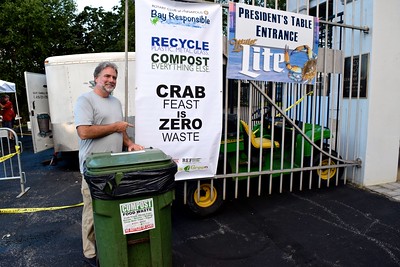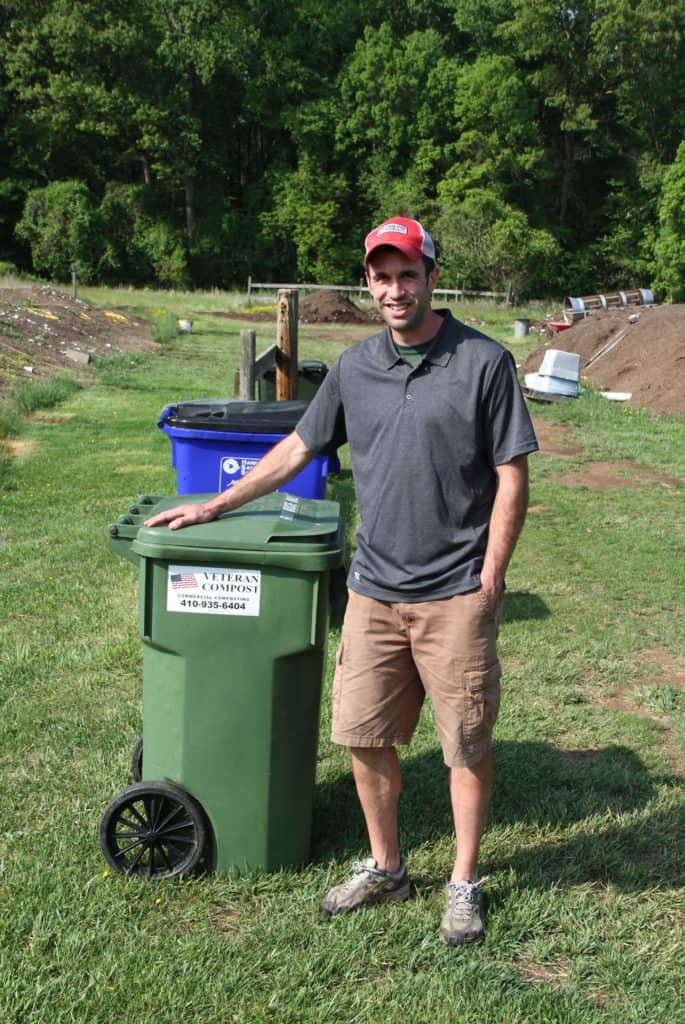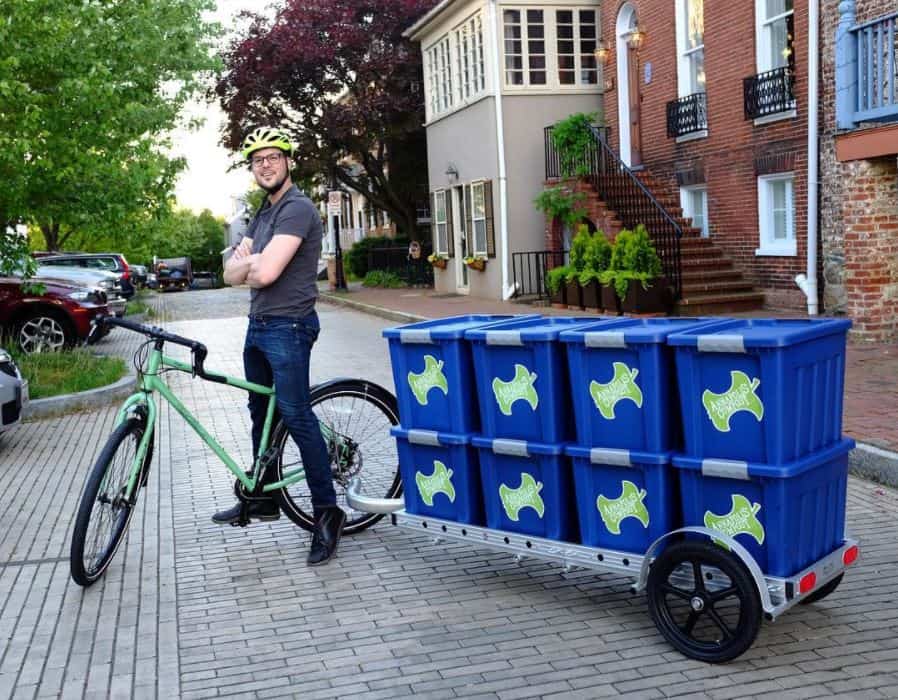Composting Businesses Do the Dirty Work for You

By Keri Luise
Where some may just see decay and rot, others see black gold for the garden. Composting is the process of turning organic matter—food scraps, leaves, grass clippings—into a valuable addition to soil. But if you want to make it yourself, it requires collecting all that waste in a container and waiting for it all to decompose. A potentially dirty business that may be hard to accomplish in a small home or apartment.
In an effort to reduce the amount of waste headed to landfills, local businesses like Composting Crew, Annapolis Compost and Veteran Compost are helping residents, businesses and organizations make composting easier.
“Put simply, when we compost we are feeding organic material, air and water to micro-organisms and macro-organisms (like worms), who break that material down into a material packed with nutrients,” says Ben Parry, CEO of Compost Crew based in Montgomery County, one of several businesses that offer to collect waste for residents.
Compost Crew operates in Washington D.C. and parts of Maryland and Virginia, offering collection services to single-family homes, apartment buildings, and businesses.
Environmentally conscious local resident Jen Muro “has been following the Compost Crew for a long time, hoping they would grow and come over to our neighborhood and county.”

Muro says she has attempted home composting in the past but struggled with barriers from Home Owner Association rules and small spacing.
“Depressingly, I didn’t like participating in the over-consumption habit and the ‘throwing away in the garbage’ habit…because I wanted to actively practice what I preached,” Muro says. “I am trying my best in practicing zero waste, recycling, reducing consumption—all of this has not been easy, for it came with both successes [and] failures at times. It is a challenge.”
Composting Crew provides the resources individuals like Muro could use to make home composting easier.
“We provide bins, signage and training to people at home or at their workplace, who separate food waste from other trash and recycling,” says Parry.
For Veteran Compost founder Justen Garrity, composting means a career that gives back.
Operating in Maryland, D.C. and Northern Virginia, the veteran couldn’t find a job when he returned from serving in Iraq. “I started researching recycling and eventually found composting really interesting,” Garrity says. “So, I decided to take the money I saved when I was overseas and use it to start this business… compost is an awesome thing. It’s amazing seeing the results people have in their lawns and gardens when they start to add compost to their soil.”
Veteran Compost collects food scraps from customers and creates high quality compost soil blends on a 30-acre farm in Aberdeen.
“We deliver bagged and bulk compost, topsoil, worm castings, raised bed mix, and all kinds of other growing mixes that we create,” Garrity says. “We also have collection trucks that go out daily and collect food scraps from homes, offices, restaurants, schools, food manufacturers, and anyone else you can think of that generates food waste.”

Annapolis Compost is another name in the composting game. Founded by husband and wife team Karl Schrass and Anna Kramer, Annapolis Compost provides curbside food scrap composting services to Annapolis and the Anne Arundel area.
Composting was something of a habit for Schrass and Krammer— they spent four years together in Germany where “they have a separate trash can for your organic waste in every household,” says Schrass.
After moving to Maryland in 2015, the couple discovered a lack of composting businesses in Annapolis, so they started one themselves.
“We started with just some of our neighbors in our apartment building…and I started out hauling the food scraps in the back of my Prius and on my bicycle,” says Schrass.
Annapolis Compost provides customers with various sized buckets for their scraps.
“We provide them with up to two five-gallon buckets that have airtight lids on them… a countertop caddy for when you’re prepping food in your kitchen and bags for the containers,” Schrass says.
Local non-profit, Annapolis Green is another player on the composting scene. Their Responsible Events and Festivals services work with local groups, including Veteran Compost and Annapolis Compost to promote composting and recycling at special events. Their most high profile event being the annual Annapolis Rotary Crab Feast. According to co-founder Lynne Forsman, the group “composted almost up to 15 tons of crab waste and everything else at the crab feast.”
That waste eventually becomes bagged compost that the group sells locally around the holidays, returning the bounty of the Bay to the earth.
